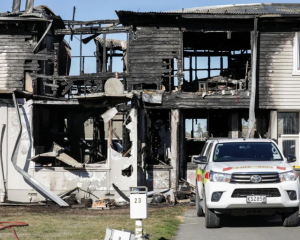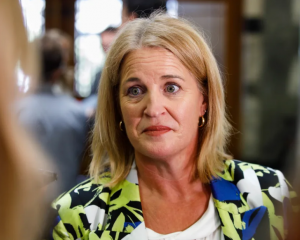More than one in five of the first 780 state house tenants facing possible eviction under a new government policy will be elderly or disabled.
A paper taken to Cabinet last month by Housing Minister Nick Smith and Social Development Minister Paula Bennett reveals that the two ministers have decided not to exempt the elderly and disabled from the new policy of reviewing all state house tenancies, ending the previous policy that a state house was "a home for life".
The full paper, placed on the Social Development Ministry website at midday yesterday, included a detailed breakdown showing that 20 per cent of the first batch of tenants to be reviewed would be 65 or over and 27 others would be "permanently and severely disabled".
The paper was later removed and an edited version was posted later yesterday with the breakdown of affected tenants deleted.
The controversial policy is intended to "shift expectations away from social housing for life to social housing for the duration of housing need". It takes effect after the Social Development Ministry takes over allocating social housing from Housing NZ on April 14, and the first affected tenants will be notified before the end of next month.
As expected, the ministry has been told to start by reviewing 780 of the 5447 state tenants who are already paying within $50 a week of the estimated market rent for their homes.
The other 63,187 Housing NZ tenants pay rents fixed at 25 per cent of their incomes. They now appear unlikely to be affected by reviews because ministers have decided against putting all tenants on fixed three-year tenancies, instead targeting those who can afford to move into private housing because they are already at or near market rents.
Legislation passed last year allowed ministers to exempt vulnerable groups from reviews, and Dr Smith said in November that those could include "vulnerable elderly or disabled tenants".
But Ms Bennett said yesterday that Cabinet had decided "not to formally exclude any groups of people from reviewable tenancies".
"We want to learn more about people's circumstances through the process before we make any final decisions about what groups should be formally excluded from consideration," she said.
"The review ensures that elderly and disabled tenants are in the right housing for them. This includes being able to re-allocate these people to more appropriate social housing.
"A common sense approach sensitive to the needs of these tenants will be taken. Unless there is more appropriate social housing for disabled or elderly people, the review process will be fast tracked. No disabled or elderly people will be asked to quit state housing and obtain private housing in the coming year unless they are actively willing to do so."
However the Cabinet paper outlines a process of "active engagement"with affected tenants to help them find a new home, which is expected to take "at least six months"- but with a 90-day eviction notice for tenants who are judged not to need social housing and have not moved out.
"The process needs to be backed up by the ability for providers to terminate a tenancy if [the ministry] determines that the household could clearly sustain private housing, but refuses to take steps to do so," it says.
"This is a last resort, and no households would receive notice to end a tenancy without significant engagement and support to find alternative housing."
Labour housing spokesman Phil Twyford said he wanted "a cast-iron guarantee from the ministers that they will protect the elderly and disabled and families with children".
- By Simon Collins of the New Zealand Herald











